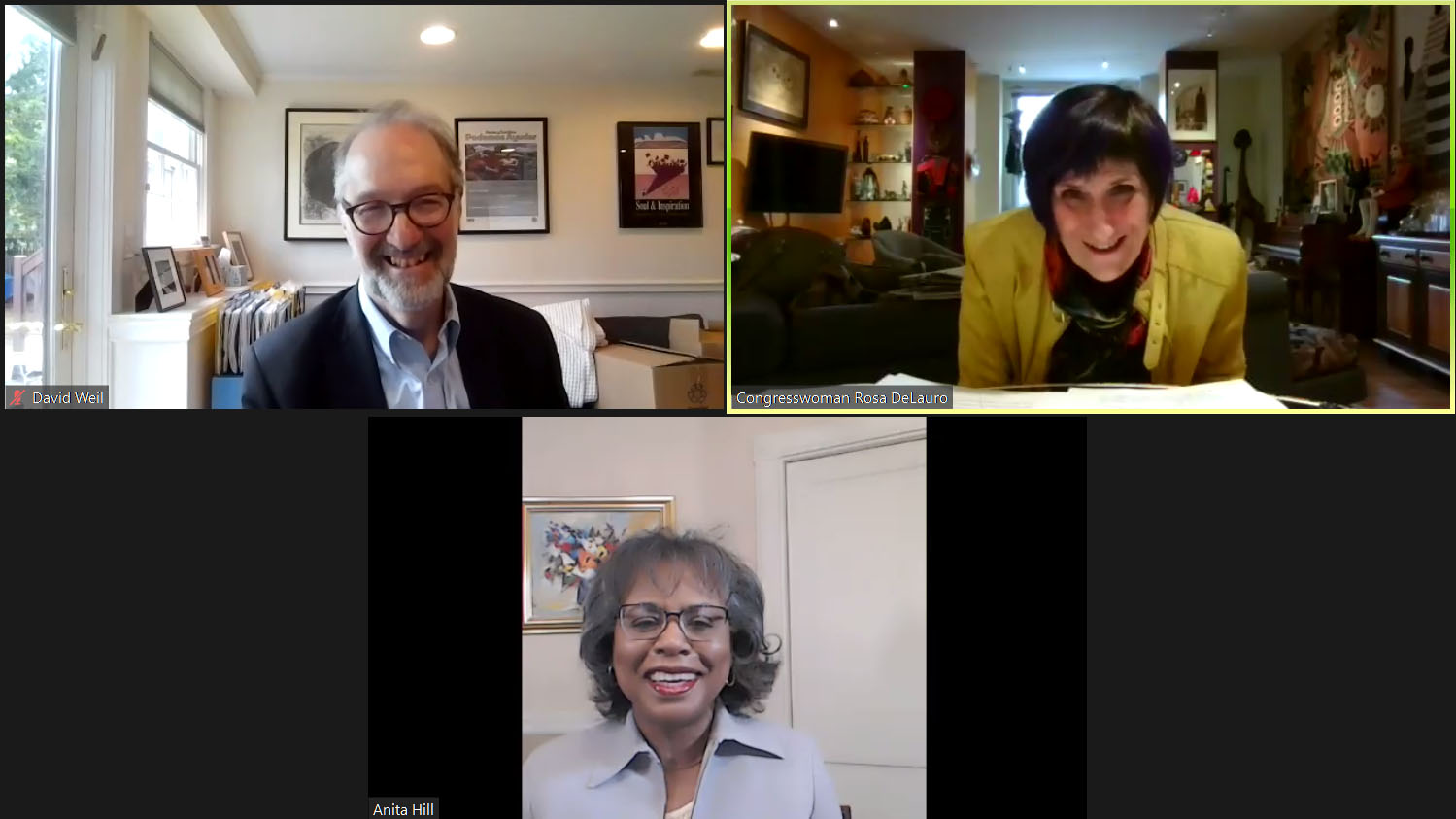
Just weeks after President Joe Biden signed the American Rescue Plan, including critical provisions to support families and children in poverty, Rep. Rosa DeLauro, a key architect of the child tax credit expansion in the relief bill, spoke at Heller for a Conversation with the Dean. Her March 31 talk was part of the First 100 Days event series, highlighting key policy conversations at the start of the Biden administration.
With the American Rescue Plan, “half of kids are lifted out of poverty with the stroke of a pen,” said DeLauro, who has represented Connecticut’s third district since 1991 and has been working to expand the child tax credit since 2003.
She credits in part the National Academies of Sciences, Engineering, and Medicine’s (NASEM) 2019 report, “A Roadmap to Reducing Child Poverty,” co-authored by Director of the Institute for Child, Youth and Family Policy (ICYFP) Dolores Acevedo-Garcia, for giving her compelling data and policy recommendations that led to the one-year expansion.
“The NASEM roadmap showed that we could cut child poverty by 50% if we went down this road,” DeLauro said. “Now, we need to put something in place that is permanent that will allow people to get on their feet, to be economically secure, to take good care of themselves and their families.”
To kick off the conversation with Dean David Weil, DeLauro shared how her dedication to working for children, women and families in poverty came from her upbringing as the only daughter of working class Italian immigrants in Connecticut.
“I grew up in a blue-collar family where they struggled financially their entire lives,” says DeLauro, who remembers being evicted during her childhood. Her mother worked in the garment industry. “I had a first-hand view of what it was like for women, particularly immigrant women, with their backs hunched over those sewing machines.”
DeLauro followed her parents, who served on the New Haven city council, into public service, and was elected to Congress in 1990. She rose steadily through the ranks, and is now the chair of the Appropriations Committee, one of the most powerful positions in the House of Representatives.
“For so many years, the people of this country were told, you want to get the government off your back,” said DeLauro. But “my parents taught me that what the government can do is expand opportunity.”
That includes important worker rights and protections, especially for women. She thanked Weil for his service as Wage and Hour administrator in the Department of Labor during the Obama administration, during which he worked with DeLauro on labor and employment policy, and spoke about her efforts to include paid family and medical leave, equal pay for women, child care subsidies and more in the next economic recovery package.
“The work that women do is not valued, nor is there the respect for the decisions that women make for themselves, for their health, for their families. The cutters in the dress industry—who were men—got more money than the garment workers themselves, who were women. That still exists today. That’s what we need to turn around,” she says. “My hope is there will be enough of an understanding of what’s happened to women in this pandemic. Women are not opting out—they are being pushed out of the workforce, and a lot of that is around the childcare issue.”
DeLauro also responded to questions from Nomi Sofer, ICYFP senior strategic communications specialist, and Anita Hill, university professor of social policy, law, and women's, gender and sexuality studies.
She urged the Heller community to continue to pursue research and policy solutions for social justice and social change.
“The work that you do gives us the solid underpinning to stand tall and not stand down or take no for an answer,” she said.
In closing, Dean Weil said, “These are battles that are never solved in one session of Congress or one presidential term. I think you’ve given us such a vivid picture of the need for persistence and keeping one’s eye on the North Star. It’s an exciting moment we’re in. The work is never done.”
The full, captioned recording is available below.
